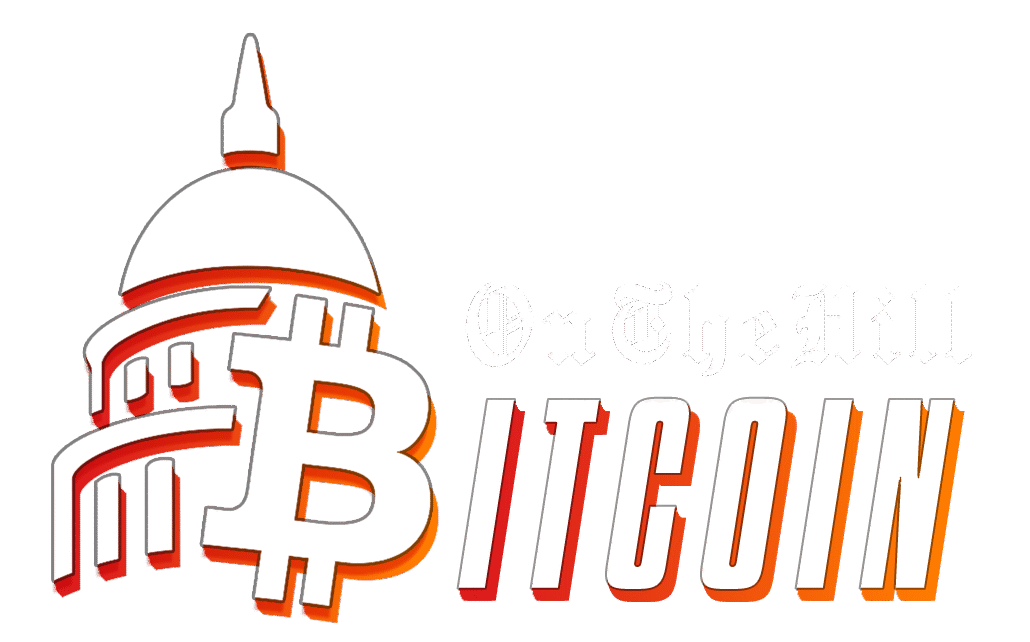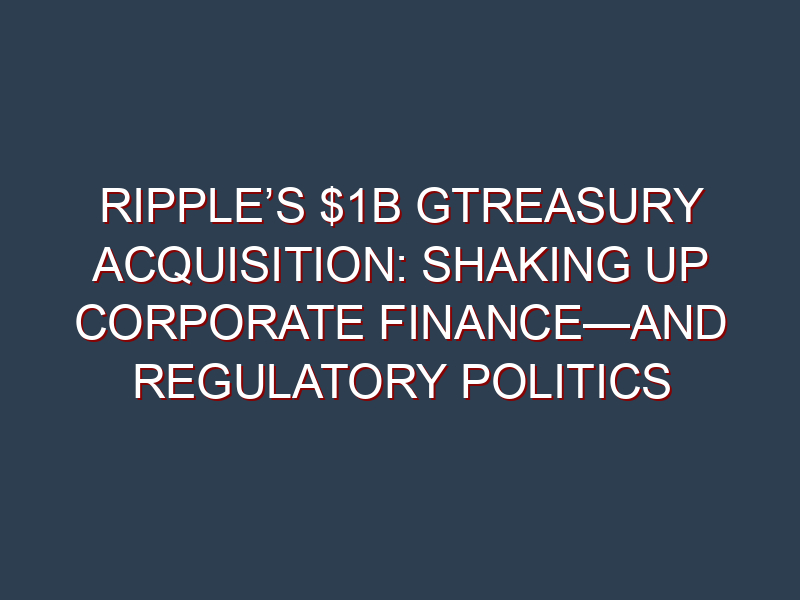Ripple’s Bold $1 Billion Move: A New Political Flashpoint?
The crypto world has always been entangled in the political web of Washington, but Ripple’s latest move—its $1 billion acquisition of corporate treasury giant GTreasury—is about to pull a whole new thread. As Ripple steps onto the stage of traditional finance, political battles over digital assets, financial oversight, and the future of treasury management are heating up.
What Drives Ripple—and Lawmakers’ Response?
Ripple’s ambition to be a core player in corporate finance is no secret. But this push comes at a time when U.S. regulators are actively shaping the boundaries of crypto’s influence in the broader economy. Lawmakers and regulators are forced to reexamine their stance as blockchain-powered titans like Ripple drive deeper into the institutions at the heart of American business.
Already, the Securities and Exchange Commission (SEC) has been embroiled in high-profile disputes with Ripple over XRP’s regulatory status. Ripple’s latest acquisition raises the stakes, as politicians debate whether crypto companies should be allowed to handle the same treasury functions as the largest banks.
Regulatory Oversight in the Spotlight
Washington is watching, and not just from the sidelines. Treasury Secretary Janet Yellen has signaled greater scrutiny on how digital assets interact with the traditional financial system. The U.S. Department of the Treasury has repeatedly called for strong oversight on crypto firms entering legacy finance. Ripple’s GTreasury deal could trigger new hearings in Congress and catalyze policy proposals for tighter controls—or perhaps, clearer rules—for blockchain firms.
Not to be outdone, the Commodity Futures Trading Commission (CFTC) is also angling for greater jurisdiction over certain crypto activities. As Ripple becomes a central player in the treasury management business, turf wars among Washington’s agencies could shape the regulatory narrative for years to come.
A New Arena for Crypto Policy—and Political Alliances
Ripple’s acquisition establishes the company as a high-visibility test case for how U.S. policymakers will respond when crypto-native firms attempt to integrate with longstanding pillars of the financial system. The deal will likely energize debate between pro-innovation lawmakers, eager to foster U.S. leadership in fintech, and those citing national security, consumer protection, and systemic risks associated with digital assets.
The move could also influence the next wave of congressional hearings, agency rulemakings, and even the political conversation heading into the 2026 midterms. Don’t be surprised if this deal turns into a rallying cry for politicians seeking to take a stand—whether they promise the full embrace of crypto innovation or a tightening of the regulatory screws.
The Bottom Line: Ripple, Regulation, and 2025’s Political Chessboard
Ripple’s $1 billion leap into the world of corporate treasury management is more than a business decision—it’s a political event. As regulatory agencies and lawmakers grasp with the growing convergence of crypto and mainstream finance, the outcome will help define not just Ripple’s future, but the shape of American financial regulation in the era of blockchain.
For now, all eyes remain on Capitol Hill, the SEC, and the Treasury Department as the next chapter in digital asset regulation is about to be written.





